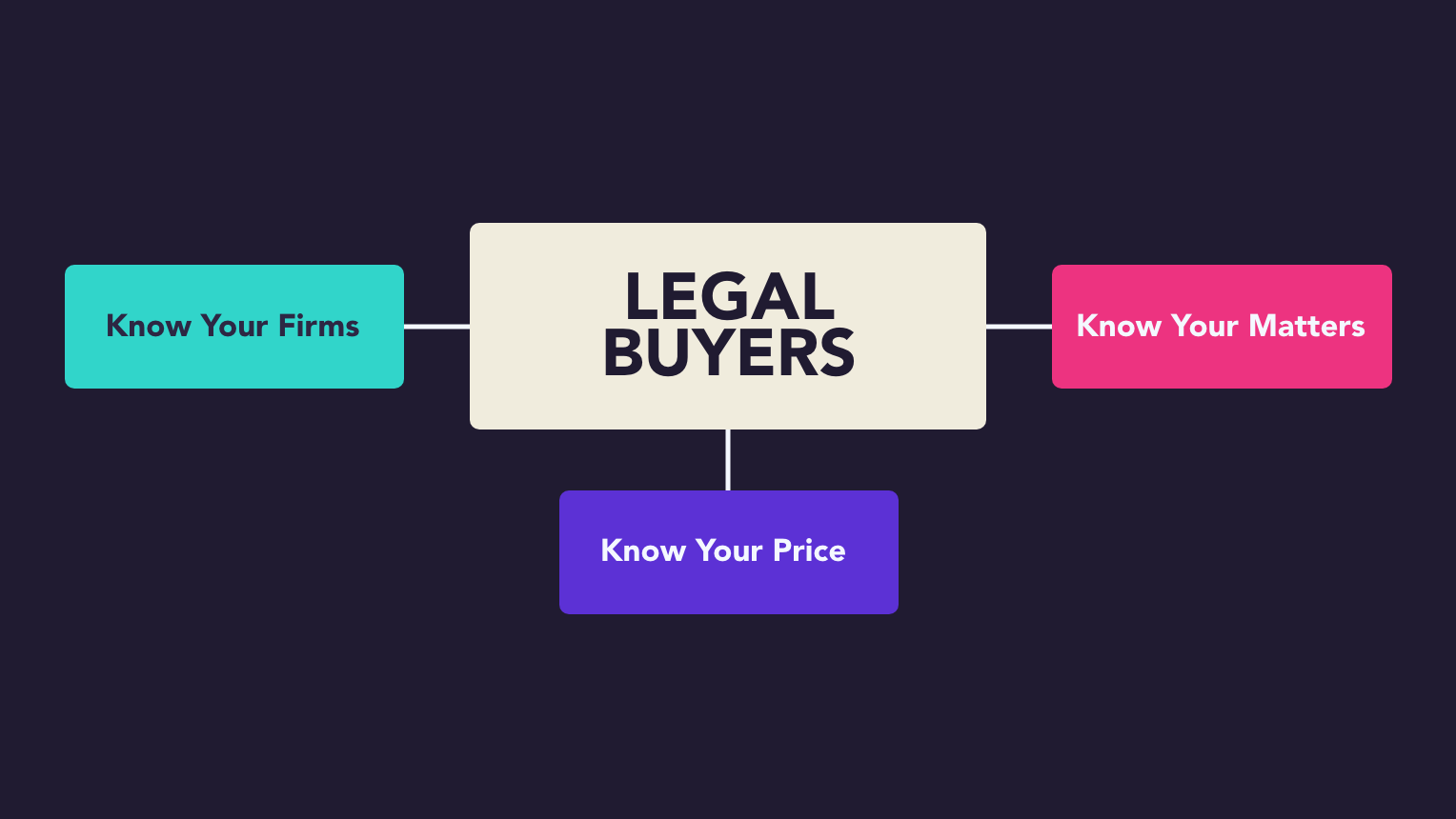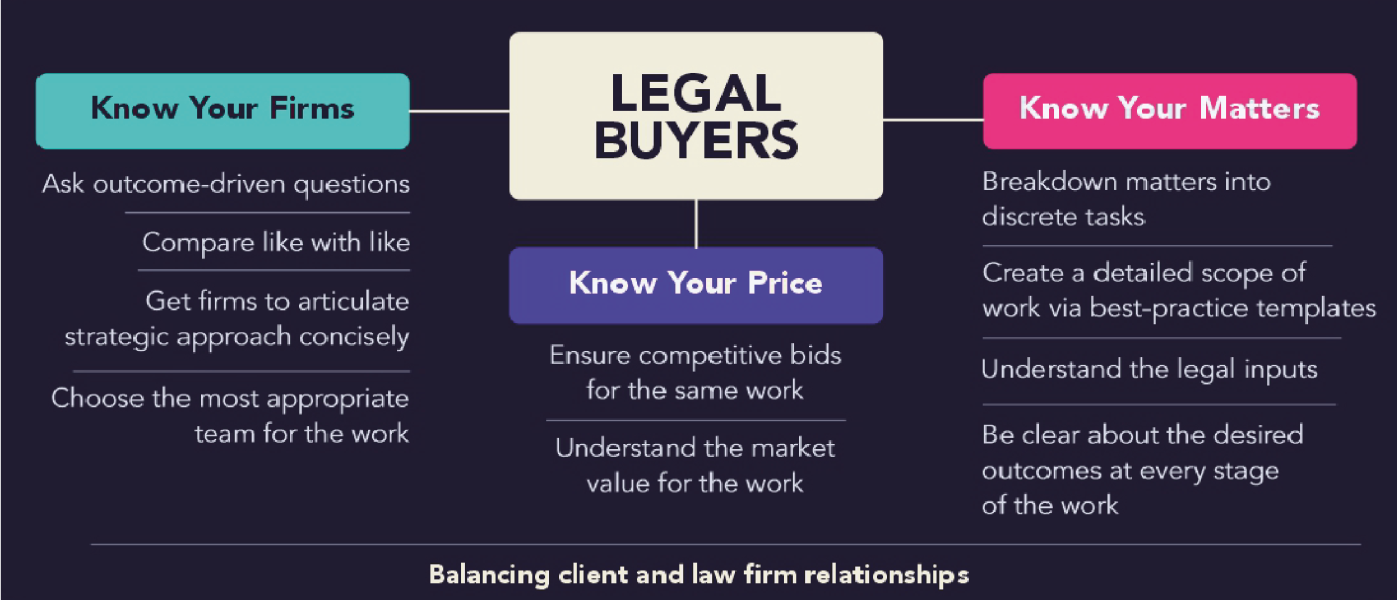
I still find it incredible how far private practice lawyers and their clients are out of sync on what constitutes value in legal services. For the FT Innovative Lawyers programme, law firms send us their top matters. They believe clients will give glowing reviews for innovation, but in private interviews the clients and law firm partners often contradict one another in outlining what was innovative. At RSGI, we call this "the Client-Lawyer Disconnect".
Private practice lawyers tend to place value on inputs – legal expertise – whilst the client values outputs – the commercial outcomes and experience of using the firm. Despite the best efforts of law firms and major clients, this disconnect has continued for years.
Enter PERSUIT. We decided to combine forces, using their legal marketplace data and our qualitative insights to uncover ways of improving the client-lawyer disconnect. PERSUIT is a buying platform on which over 50 major multinationals such as Walmart, Novartis and BT, regularly select legal advisers for their matters.

The company fields customer service managers (CSMs) who actively guide these organisations through thousands of requests for proposals. The result is an emerging data set that gives insights into the dynamics of buying and selling legal services, the market price for different types of legal work and how to create better client-lawyer relationships. This emerging data set excited us, so we decided to combine some of its early insights with our qualitative research.
The result: we identified 3 steps in-house legal teams can take to improve their buying behaviour and relationships with external law firms:
- Know your firms
- Know your matters
- Know your price
1. Know your firms
In the 1990s, there was a phrase that became synonymous with the smart buying of legal services: ‘horses for courses’. In other words, choose the firm that is most appropriate for the job. Choices were determined by the GC’s market knowledge and personal relationships with key partners in outside law firms. Now purchasers are more sophisticated. But the challenge still remains: how to identify the best external lawyers for the job in hand?
PERSUIT says, “choosing well in the first place is a key driver of success.” But what does it mean to choose well? Surely, this is something that every multinational does?
In practice, decisions get made quickly, RFPs are laborious and inefficient, and the right firm for the job is not always chosen. Catherine Bamford, a legal technology consultant, recently called the process “broken”. The idea of PERSUIT’s platform is to streamline the RFP process and take out inefficiencies such as inconsistent proposals loaded with marketing. By using standardised templates to collect the firms’ data, credentials can be properly compared.
Firms have to answer the questions ‘why us?’ and ‘what strategy will you use?’ for different types of work on the Persuit platform. What is striking in the responses is the clarity, the detailed step-by-step plans, the relevant display of knowledge.
In a litigation matter on the PERSUIT platform, the law firms had to detail their approach to the case: One firm outlined its knowledge of the judge, the opposing side, the possible outcomes at each stage of the case and their responses. The incumbent firm that the client had been intent on choosing could not display the same credentials. This led to the client choosing the right firm for the work and having a better experience.
Getting the right information about the firms upfront means purchasers are less prone to complain and find results are more predictable. At RSGI, we have long wondered whether incumbent firms or newly appointed ones are more likely to deliver innovation. Looking at the Persuit data, it seems we have been asking the wrong question:
It doesn’t matter if the firm is new or old. But un-examined loyalty or assumptions about a firm’s credentials will always be trumped by precise and relevant insight into a firm’s suitability for the job in hand.
2. Know your matters
In-house legal teams can also get better at instructing external counsel by better understanding the legal inputs needed in a matter. But often in-house lawyers do not have the time to properly assess the work they are outsourcing.
One of the advantages of the PERSUIT platform is that it allows purchasers to properly scope their matters using standardised templates. This allows in-house legal teams to be precise and detailed about their requirements. The result, say PERSUIT, is a better client experience.
We see multinational clients attempt to collect data from their panel firms and streamline their RFP approaches. However, it is an expensive and complex task. PERSUIT refine these templates constantly, which lawyers can easily use and tweak to their needs.
Granularity allows the purchaser to understand the required legal inputs better and share expected outcomes for each stage of the matter. This means that the outcomes drive the inputs rather than the other way around. “The tail stops wagging the dog,” commented one Persuit client service manager.
The benefits are not just one way. Law firm partners say they like getting more fulsome briefs. More information allows them to better predict how long a matter will take, and what resources it will require.
3. Know your price
In nearly three decades in the profession, I have rarely heard clients describe their law firms as “good value for money”. Even on bet-the-company cases, client commendation of blue-chip law firms’ value for money is grudging. There is simply a sense that law firms cost too much.
Many law firms are hesitant to share fee rates with competitors. However, one of the revelations we found in talking to Persuit is the degree to which both law firms and clients welcome the fee transparency.
For example, one multinational had a critical M&A deal that was priced at $15 mn. They were keen to use their incumbent law firm but put an RFP out on the PERSUIT platform. The average price for the matter came out at $10 mn. The client stuck with the incumbent firm but was happier knowing they were paying the market price for the work. As one PERSUIT CSM said, “Strangely enough, lawyers don’t like to negotiate for themselves. And we take this out of the process of instructing external counsel.”
The result: You get a CAP!
- Knowing your firm > Clarity (C)
- Knowing your matter > Alignment (A)
- Knowing your price > Predictability (P)
PERSUIT’s platform demonstrates that through the accumulation of data , the client-lawyer disconnect starts to disappear. Even if the PERSUIT system is not used, knowing your firms, matters and pricing in a more granular way will inevitably result in a ‘CAP’ outcome!
Better relationships, experiences and lower costs, what is not to like? But there are also less visible but important benefits, such as the ability to assess law firm diversity: Maurus Shreyvogel, head of legal innovation at Novartis says, “After the PERSUIT platform had been put in place for 20 months, over half of our billable partner time was recorded from diverse talent.”
